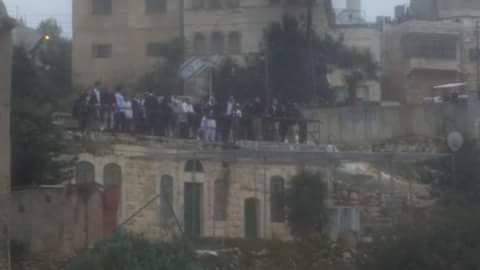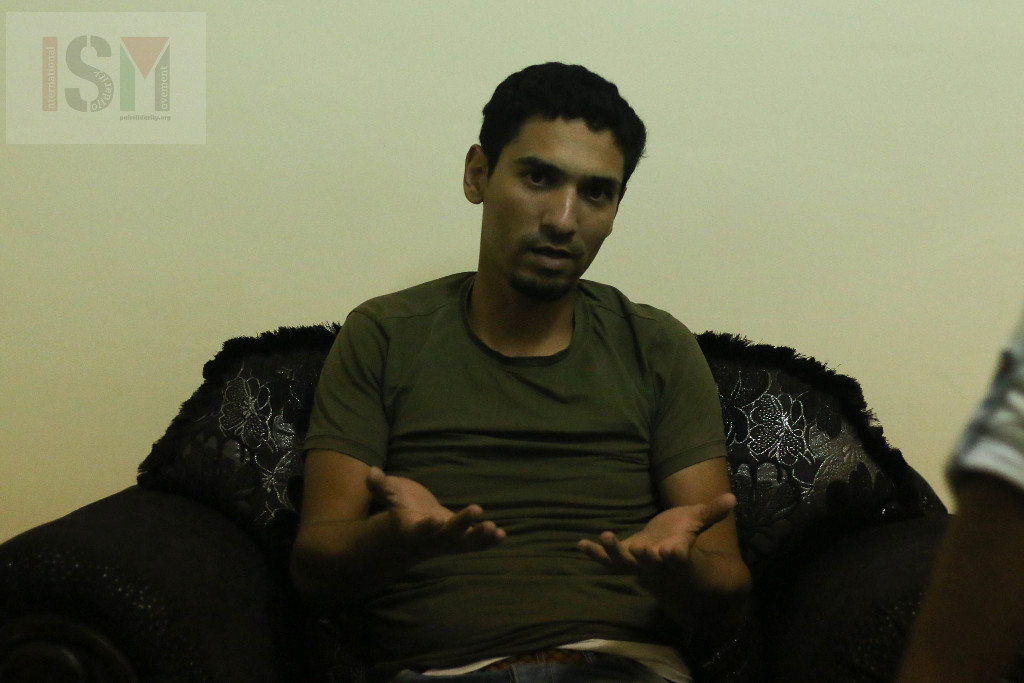Tag: Interview
-
Eye-witness account of a murder: ‘They didn’t want her alive, they want her dead, they meant to kill her”
16th November 2015 | International Solidarity Movement, al-Khalil team | Hebron, occupied Palestine On 25th October 2015, 17-year old Dania Arsheid was gunned down by Israeli forces in front of the Ibrahimi mosque in occupied al-Khalil (Hebron) and left to bleed to death. One of the shopkeepers nearby the Ibrahimi mosque witnessed the events leading…
-
“When soldiers see a camera they come to you like a beast”
16th November 2015 | International Solidarity Movement, Al-Khalil team | Hebron, occupied Palestine Since the beginning of October Israeli soldier- and settler violence has increased sharply and resulted in even further restrictions on Palestinians’ everyday lives in occupied al-Khalil (Hebron). Imad Abu Shamsiyyeh, a volunteer with the Palestinian organization Human Rights Defenders, has been documenting…
-
Punished for his work: medic Ahmad Nasser describes his recent arrest
November 10th, 2015 | International Solidarity Movement, Huwarra Team | Ramallah, Occupied Palestine In the early morning of November 2nd 2015, Ahmad Nasser was kidnapped by Israeli forces from his home near Ramallah. He was accused of attempting to kill soldiers by throwing stones and molotov cocktails, and was released without charge 15 hours later. He was…



